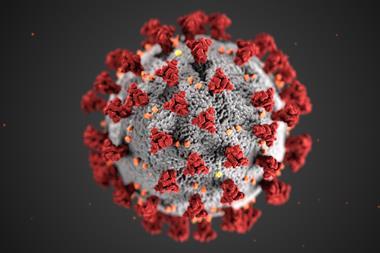With the massive outpouring of research related to Covid-19, a group of scientific publishers and scholarly communications organisations has joined forces to help ensure these studies are reviewed and published as quickly and openly as possible. The major goal of the new initiative – which includes the Public Library of Science, the Royal Society, eLife and five other publishers – is to speed up the peer review process while also ensuring their scientific rigour and reproducibility.
Participants issued an open letter on 27 April that seeks volunteer reviewers with appropriate expertise, from all career stages and disciplines, for a ‘rapid reviewer list’. By signing up, these scientists would commit to speedy reviews, give permission for their reviews and identity to be shared across participating publishers and journals, and agree to help identify and highlight crucial Covid-19 preprints as early as possible. The latter activity would enable expert reviewers invited to vet new Covid-19 research to optimise their limited time.
Within 24 hours of issuing the letter, 900 reviewers had added their names to the list, and more than 1000 researchers from 70 countries had signed up by 29 April, according to the Netherlands-based Open Access Scholarly Publishing Association, which endorses the initiative and hosted the open letter.
In a separate effort to track landmark coronavirus studies, early-career researchers from the biological preprint highlights service preLights have launched the new free and publicly accessible website covidpreprints.com.
In just the three months between early January and early April, more than a thousand coronavirus preprints were posted online, according to preLights. As the number of non-peer-reviewed articles on Covid-19 has soared and been made available across different platforms, it has become increasingly difficult to filter out reliable information. The intent of the new website is to address that problem by linking to expert reviews from organisations and leaders in the field.
‘Especially in times like this, you really see the urgency of science communication happening in real-time,’ says Heather Joseph, who serves as executive director of the Scholarly Publishing and Academic Resources Coalition in Washington DC. She applauds these publishers for being innovative and lowering the barriers between their reviewer pools.
Joseph agrees that the current flood of Covid-19 preprints is further stretching the already overtaxed scientific publishing and communication apparatus. ‘One of the hardest things to do for a journal is to find reviewers, so they tend to guard their pool of reviewers very closely, but this group is saying that we need to share this precious resource with the community in real-time,’ she states.
Joseph says it will be interesting to see how the scientific publishing enterprise has changed once this pandemic is over. ‘I don’t think that we will ever be able to go back to science or science communication as usual once Covid-19 has passed,’ she tells Chemistry World. ‘This initiative is one example of the community responding to how best to do science when the pressure to get results is at its most intense.’

















No comments yet